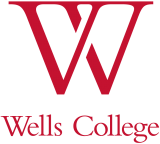Code of Conduct
In order to provide a safe, secure, and welcoming atmosphere, conducive to the appropriate use of facilities, staff, services, and materials the following are prohibited:
- Loud or unreasonable noise. Please turn cell phone ringers off and take phone calls in the hallways or outside
- Intentionally damaging, destroying, or stealing library or personal property
- Removing library materials from the Library except through established lending procedures
- Presence in staff-only areas without permission of staff
- Alcohol or tobacco use
- Animals (except for guide dogs)
- Selling or soliciting
- Misuse of restrooms
- Posting materials anywhere in the library. (Posting on the bulletin boards in the Learning Commons and main entrances is allowed if permission has been granted by Student Activities).
- Any other illegal activity or conduct in violation of federal, N.Y. State, local, or campus law, ordinance, or regulation.
** Food and drinks are allowed, however, we do ask that drinks are covered and food is properly disposed of.
Copyright Policy
The Long Library Copyright Policy, in compliance with the U.S. Copyright Act of 1976, covers library use for reproductions of materials made for print or electronic reserves.
Materials may include books, photocopied book chapters, a/v materials, journal issues, photocopied journal articles, and electronic resources.
Section 107 of Title 17 of United States Code allows the making of multiple copies for classroom use – a provision for fair use, the text of which follows:
Notwithstanding the provisions of sections 106 and 106A, the fair use of a copyrighted work, including such use by reproduction in copies or phonorecords or by any other means specified by that section, for purposes such as criticism, comment, news reporting, teaching (including multiple copies for classroom use), scholarship, or research, is not an infringement of copyright. In determining whether the use made of a work in any particular case is a fair use the factors to be considered shall include:
(1) the purpose and character of the use, including whether such use is of a commercial nature or is for nonprofit educational purposes;
(2) the nature of the copyrighted work;
(3) the amount and substantiality of the portion used in relation to the copyrighted work as a whole; and
(4) the effect of the use upon the potential market for or value of the copyrighted work.
The fact that a work is unpublished shall not itself bar a finding of fair use if such finding is made upon consideration of all the above factors.
Long Library follows the outlined principles of Fair Use when placing materials on reserve:
- Whenever possible, materials to be placed on reserve will be part of the library's collection.
- Materials will only be placed on reserve at the request of a faculty member or administrator.
- Materials should include appropriate citation/attribution to sources.
- Complete books no longer in print will be scanned only after the faculty member secures permission.
- Single photocopies of copyrighted materials are placed on reserve. Anything exceeding this will be placed on reserve only after the faculty member secures permission.
- Photocopies or scans will be limited to: a chapter from a book or no more than 10% of a work; a short story, short essay, or short poem, an article from a serial but no more than 10% of an issue. Anything exceeding this will be placed on reserve only after the faculty member secures permission.
- All electronic reserve scans made by the library will include a copyright notice.
- Materials from other institutions (including ILLs), materials borrowed (Netflix, etc.), and reproduced copies of videos or DVDs will not be placed on reserve.
- Materials not requiring permission include syllabi, exams and/or answers, quizzes and/or answers, lecture notes, government publications, material for which the professor owns copyright.
- The faculty member is responsible for securing all copyright permissions necessary. Information on obtaining permission is here. Copyright compliance quick links for faculty are here.
Note: This policy is not a substitute for legal advice.
Collection Development Policy
The Long Library Collection Development Policy policy provides a framework for the development and maintenance of online, print, and media content acquired by and/or accessed through the Wells College Library. Content Management includes the selection of new materials as well as the ongoing assessment of existing collections and resources. The main objective of collection development and maintenance is to provide access to a current, relevant collection that reflects the curricular needs of the students, faculty, and staff of Wells College. There will be continuous development and modification of this policy as the information needs of the College change and the information delivery and access methods also change.
Loan Periods
Click for a summary of periods by material and patron type. A person is eligible for "Resident" borrowing privileges if they are resident of Aurora, Genoa, King Ferry, Ledyard, Poplar Ridge, Sherwood, Scipio Center, Scipioville, Union Springs, or Venice Center. Special permission for persons outside the lending area is given by the Library Director or the Circulation Librarian. All SCCS staff and teachers are considered Residents (SCCS/Wells Partnership Program).
